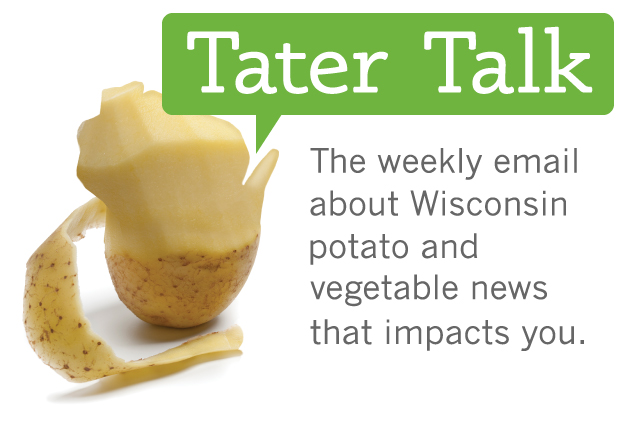Yearly Archives: 2014
We’re Number One (Almost)
Wisconsin ranks second in the USA for growing and processing potatoes and vegetables. We’re already number one for lima beans, carrots, green beans and red beets. Learn more: http://vegetables.wisc.edu/ http://wisconsinpotatoes.com/2012/09/irrigated-vegetable-production-key-to-central-wisconsin-economy/ http://potatoassociation.org/documents/A_ProductionHandbook_Final_000.pdf http://www.btny.purdue.edu/pubs/id/id-56/ID-56.pdf http://www.soils.wisc.edu/extension/wcmc/2005/ppt/Bussan.pdf http://www.soils.wisc.edu/extension/wcmc/2005/pap/Bussan.pdf http://www.hort.purdue.edu/rhodcv/hort410/carrot/ca00003.htm http://www.wiscran.org/special/libfile_files/media/317.pdf http://fyi.uwex.edu/cwas/files/2011/04/CWAS_NL_April-2011.pdf
Wisconsin Potato Growers: Innovators in Sustainability
Central Wisconsin is the prime growing region for Wisconsin potatoes and vegetables; it has it all–pristine landscapes, great outdoor activities, and valuable farmland. Thankfully, due to the innovative work of the industry, these lands are striving to be sustainable for the long-term. In 2013, the…
Vegetable Crop Update # 3
Vegetable Crop Update # 3 Read full update.
Earth Day: A great time to lay plans to keep the buzz in our gardens and fields!
Today is Earth Day when nature is awakening and signs of spring abound. Flowers are opening across the landscape and soon the countryside will be resplendent with fruit trees in full bloom. We enjoy the profusion of scents and colors but rarely do we ponder…
Vegetable Crop Update #2
Vegetable Crop Update #2 Read full update.
It’s Cold Outside
“Baby, it’s cold outside” — and that’s VERY good for most agriculture, trees and the environment, in general.
Deep frost kills plant pathogens and insect larvae by the billions. That means fewer aphids, beetles and emerald ash borers.

